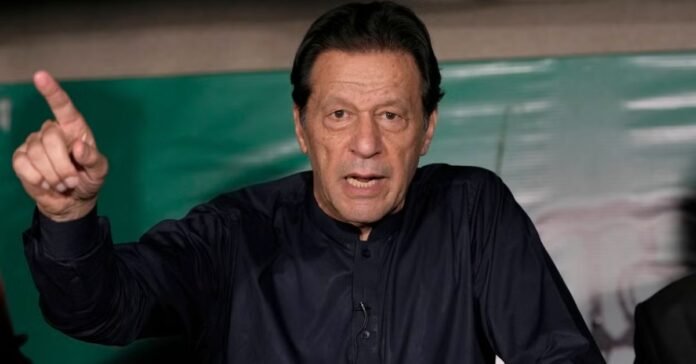Imran Khan’s journey from legendary cricketer to Prime Minister of Pakistan is remarkable. His life encapsulates an extraordinary blend of sportsmanship, philanthropy, and political acumen. This article delves deep into Imran Khan’s multifaceted evolution, highlighting his impact on and off the cricket field, his philanthropic endeavors, and his political rise.
Early Life and Cricket Career
He hailed from a well-educated and affluent Pashtun family. His early education at Aitchison College in Lahore and later at the Royal Grammar School in Worcester, England, laid a strong foundation for his future endeavors. He graduated from Keble College, Oxford, in 1975, studying Philosophy, Politics, and Economics.
Khan’s cricket career began in earnest when he made his Test debut for Pakistan in 1971 against England. Over the next two decades, he established himself as one of the world’s finest all-rounders. Known for his charismatic leadership and fierce competitiveness, Khan captained Pakistan to its first-ever World Cup victory in 1992. His cricketing prowess earned him accolades and cemented his status as a national hero.
Philanthropic Ventures
After retiring from cricket, Imran Khan focused on philanthropy, driven by a profound responsibility towards his country. His most significant contribution in this arena is the establishment of the Shaukat Khanum Memorial Cancer Hospital & Research Centre in Lahore in 1994. Named after his mother, who succumbed to cancer, this hospital provides state-of-the-art cancer treatment to patients, regardless of their financial status. The success of this project is a testament to Khan’s dedication and ability to mobilize resources for noble causes.
Khan’s philanthropic efforts extended to healthcare and education. He founded Namal University in Mianwali in 2008. The university aims to provide quality higher education to underprivileged students, empower the youth, and foster socio-economic development in Pakistan.
Entry into Politics
Imran Khan’s transition from sports to politics was fueled by his desire to bring about tangible change in Pakistan. He founded the Pakistan Tehreek-e-Insaf (PTI) 1996 to create a just and prosperous society. Initially, PTI struggled to gain a foothold in the political landscape dominated by entrenched parties. However, Khan’s persistence and unwavering commitment to his principles began to resonate with the masses.
Khan’s political journey was marked by relentless campaigning against corruption and advocating for judicial reform. His call for a ‘Naya Pakistan’ (New Pakistan) gained momentum, particularly among the youth and urban middle class. Despite facing numerous setbacks, including electoral defeats, Khan’s resilience, and growing popularity, he kept PTI in the public eye.
2013 Elections and PTI’s Rise
The 2013 general elections were a turning point for Imran Khan and PTI. Although PTI did not win the majority, it emerged as a formidable opposition force. Khan’s emphasis on transparency, accountability, and anti-corruption struck a chord with voters frustrated by the status quo. The party’s governance in Khyber Pakhtunkhwa province, focusing on healthcare, education, and law enforcement, showcased PTI’s commitment to its electoral promises.
Becoming Prime Minister
The 2018 general elections culminated in Imran Khan’s two-decade-long political struggle. PTI emerged as the largest party in the National Assembly, and Khan was sworn in as the 22nd Prime Minister of Pakistan on August 18, 2018. His victory was seen as a mandate for change, reflecting the public’s desire for a new direction.
As Prime Minister, Khan faced immense challenges, including a struggling economy, foreign policy issues, and social inequalities. His administration launched several initiatives for economic stabilization, poverty alleviation, and institutional reform. The Ehsaas Program, a comprehensive social safety and poverty reduction initiative, underscored his commitment to social justice.
Foreign Policy and International Stature
Khan’s tenure has been notable for a proactive foreign policy, seeking to strengthen Pakistan’s relations with neighboring countries and global powers. He has emphasized peaceful coexistence and economic collaboration, particularly with China, under the China-Pakistan Economic Corridor (CPEC). His speeches at international forums, including the United Nations General Assembly, have highlighted issues such as Islamophobia, climate change, and the Kashmir conflict.
Challenges and Criticisms
Despite his achievements, Imran Khan’s tenure has been subject to controversy. His government has faced criticism over economic management, press freedom, and handling of political dissent. The opposition has frequently accused his administration of failing to deliver on key promises and stifling democratic processes. Nevertheless, Khan’s supporters argue that his policies are laying the groundwork for long-term improvements and systemic reform.
Legacy and Future Prospects
Imran Khan’s legacy is a complex tapestry woven from his diverse roles as a cricketer, philanthropist, and politician. His journey from the cricket pitch to the Prime Minister’s office is a testament to his versatility and dedication. Whether his vision for a transformed Pakistan will be fully realized remains to be seen, but his impact on the country’s socio-political landscape is undeniable.
Conclusion
Imran Khan’s evolution from a celebrated cricketer to a dynamic political leader is an inspiring narrative of perseverance, leadership, and commitment to national service. His life story continues to evolve, offering valuable lessons in resilience and the relentless pursuit of one’s goals.





